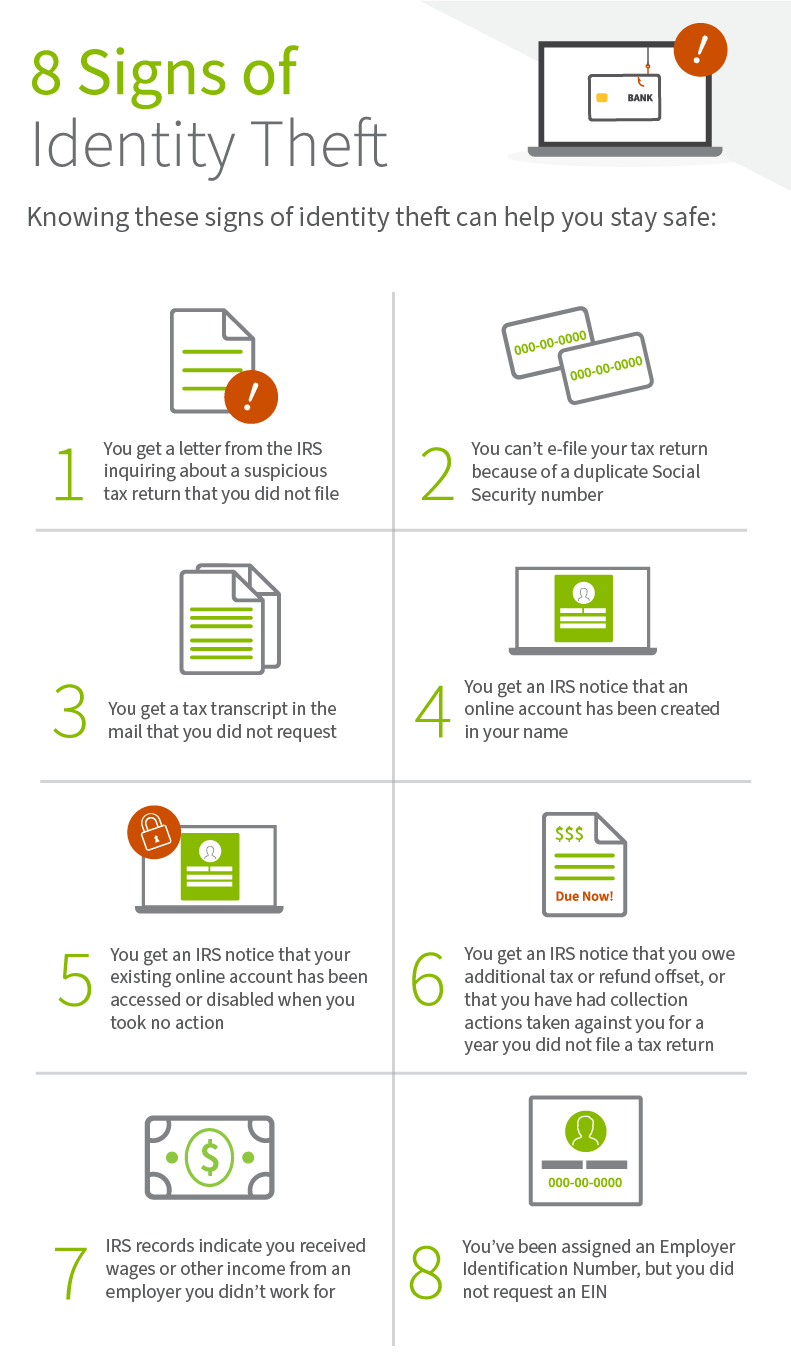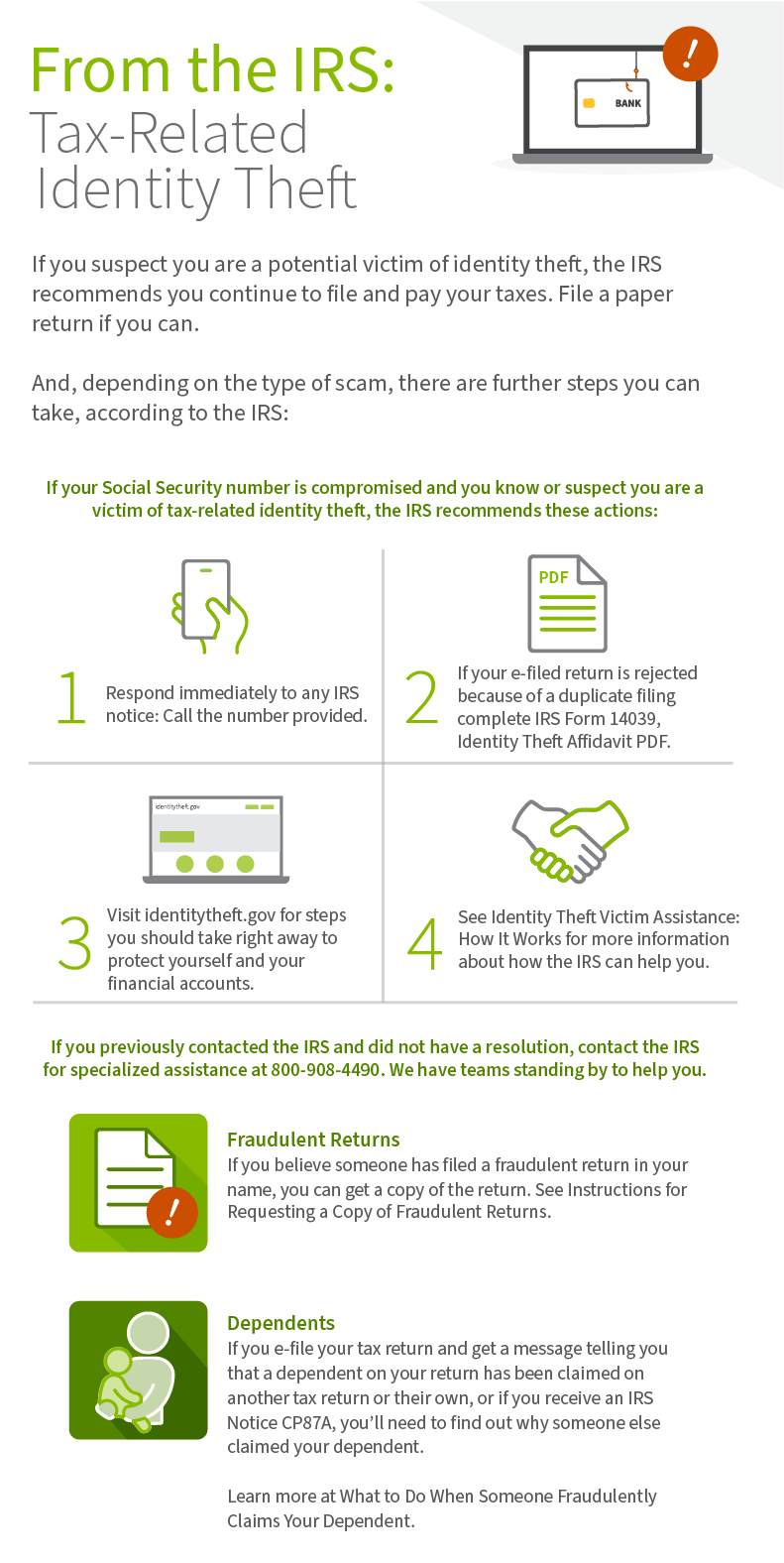Tax season can be one of the most stressful times of the year. But a new wave of scams focused on stealing your identity makes it even more difficult.
In the 6th Annual National Tax Security Awareness Week, the Internal Revenue Service warns taxpayers that tax-related identity theft occurs when someone uses your stolen personal information, including your Social Security number, to file a tax return claiming a fraudulent refund.
Regions is sharing the information to help keep customers safe.
“Recent fraud trends indicate virtually all identified fraud vectors are increasing,” said Jeff Taylor, head of commercial fraud forensics for Regions Bank. “Tax fraud and the associated identity theft remains at the top of the list. Protecting your personal information is vitally important in helping you avoid becoming a victim”
Unfortunately, you may not know you’re a victim of identity theft until you’re notified by the IRS of a possible issue with your return.
But knowing these signs of identity theft can help you stay safe:
- You get a letter from the IRS inquiring about a suspicious tax return that you did not file
- You can’t e-file your tax return because of a duplicate Social Security number
- You get a tax transcript in the mail that you did not request
- You get an IRS notice that an online account has been created in your name
- You get an IRS notice that your existing online account has been accessed or disabled when you took no action
- You get an IRS notice that you owe additional tax or refund offset, or that you have had collection actions taken against you for a year you did not file a tax return
- IRS records indicate you received wages or other income from an employer you didn’t work for
- You’ve been assigned an Employer Identification Number, but you did not request an EIN

From the IRS: Tax-Related Identity Theft
If you suspect you are a potential victim of identity theft, the IRS recommends you continue to file and pay your taxes. File a paper return if you can.
And, depending on the type of scam, there are further steps you can take, according to the IRS:
If your Social Security number is compromised and you know or suspect you are a victim of tax-related identity theft, the IRS recommends these actions:
- Respond immediately to any IRS notice: Call the number provided.
- If your e-filed return is rejected because of a duplicate filing under your Social Security number, or if the IRS instructs you to do so, complete IRS Form 14039, Identity Theft Affidavit PDF. Use a fillable form at IRS.gov, print, then attach the form to your return and mail your return according to instructions.
- Visit identitytheft.gov for steps you should take right away to protect yourself and your financial accounts.
- See Identity Theft Victim Assistance: How It Works for more information about how the IRS can help you.
If you previously contacted the IRS and did not have a resolution, contact the IRS for specialized assistance at 800-908-4490. We have teams standing by to help you.
Fraudulent Returns
If you believe someone has filed a fraudulent return in your name, you can get a copy of the return. See Instructions for Requesting a Copy of Fraudulent Returns.
Dependents
If you e-file your tax return and get a message telling you that a dependent on your return has been claimed on another tax return or their own, or if you receive an IRS Notice CP87A, you’ll need to find out why someone else claimed your dependent. Learn more at What to Do When Someone Fraudulently Claims Your Dependent.

The information presented is general in nature and should not be considered, legal, accounting or tax advice. Regions reminds its customers that they should be vigilant about fraud and security and that they are responsible for taking action to protect their computer systems. Fraud prevention requires a continuous review of your policies and practices, as the threat evolves daily. There is no guarantee that all fraudulent transactions will be prevented or that related financial losses will not occur. Visit regions.com/STOPFRAUD or speak with your Banker for further information on how you can help prevent fraud.